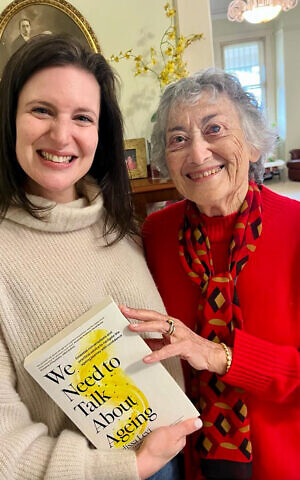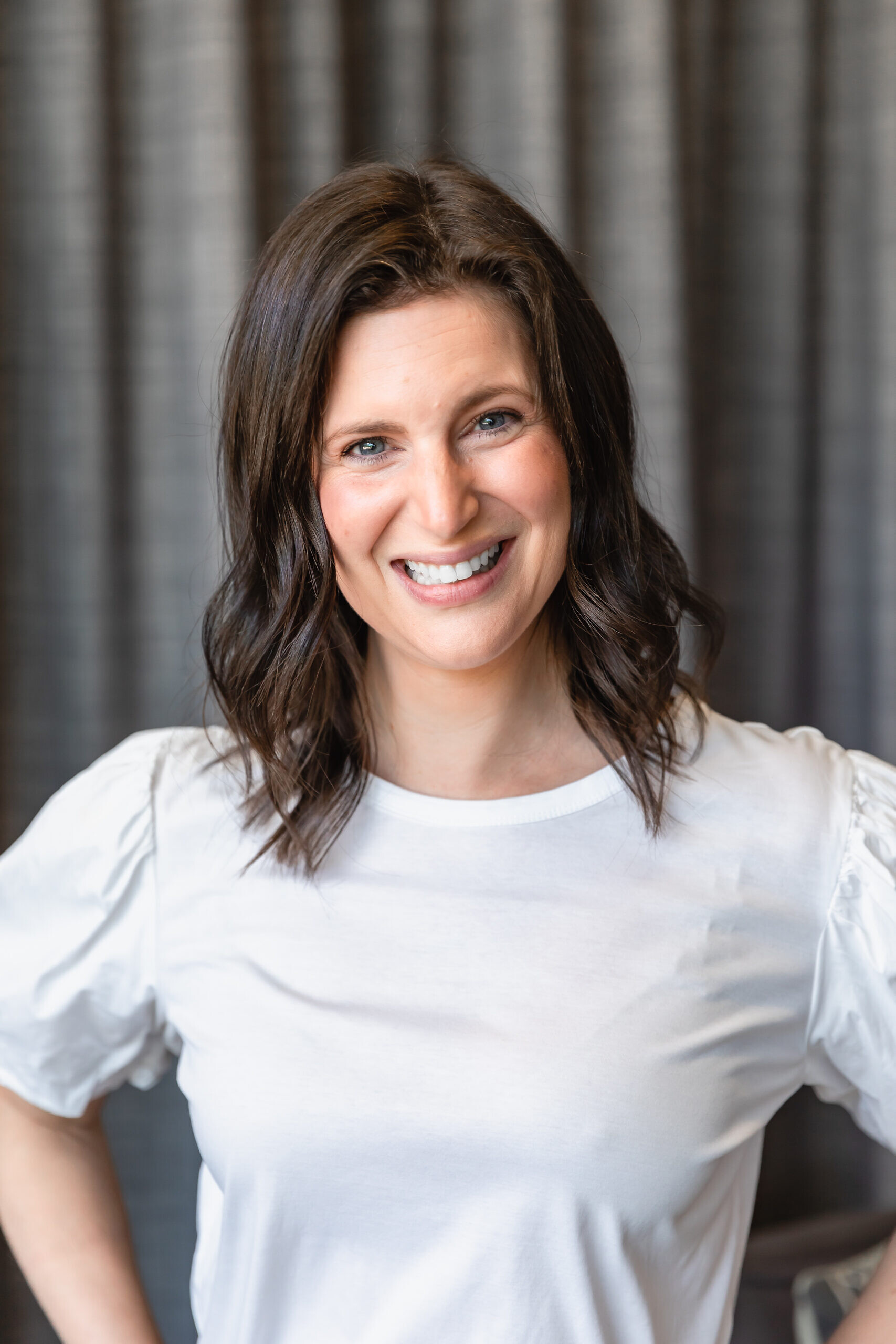When Melissa Levi was considering what she wanted to do with her adult life, she knew whatever it was, it would be with people.
“I was never destined to sit at a computer all day,” she laughed as we sat over coffee. “I wanted to find a job where I felt a strong sense of purpose and contribution; where I felt like I was making a difference.”
Psychology seemed to fit the bill. But, she said, she wanted to work with children. So how did she end up in the aged-care sector? Well, she said, she kind of fell into it when she didn’t get the placement she wanted. Rather than working with kids, Melissa was told she’d be spending six months working with an older people’s mental health service.
“I did what anyone would do in my position, I think. I called my mum and sobbed,” she recalled.
“I wasn’t even crying about missing out on paediatrics. I was crying because I was so scared of working with older people. I was scared of all the stereotypes around facing illness, loss and death. At the ripe age of 22, I just didn’t feel ready to face that.”
But, she said, it changed the course of her life.
“For our generation, I think we have the gift of being able to see the older generations in our family age.”
“It completely changed the way I see older people. I recognise now that later life is a time where we can thrive. It’s also a time where the support that we give and the time that we spend really matters. It can change someone’s day; it can change someone’s life. And I just thought that this is an area where maybe I could really add some value.”
And that’s exactly what she’s doing, with her new book We Need To Talk About Ageing.
The idea for the book came from Melissa’s personal experience, as her family grappled to deal with her zaida’s dementia.
“I remember sitting on the tarmac at Sydney Airport. I had just flown home from visiting my zaida in Melbourne, and I turned on my phone and there were about a dozen missed calls from my zaida,” Melissa recalled, explaining that the messages were asking her when she was coming to visit. “It was in that moment, I realised that he had no recollection of the fact that we had just spent that time together. And that really marked the beginning of my family’s struggle with dementia.”
Melissa explained that while she tried to help her family through the difficult time, it was difficult for them all to navigate her voice as a granddaughter and as a professional. She thought that it would be helpful for her family to have a book that could help them figure out how to have the important conversations that they desperately needed to have – a ‘what to expect when your father is ageing, has dementia, can no longer live alone, and is dying but I have no idea what to do’ kind of book.
But no matter how hard she researched she kept coming up empty-handed. And that was the moment she knew she had to write the book herself.

We Need To Talk About Ageing features stories about Melissa’s family, her patients (with names changed) mixed with expert knowledge, and practical tips and strategies to help reduce the level of fear and uncertainty that commonly surrounds ageing.
Melissa hopes that it helps families understand that they’re not alone.
Proudly, Melissa explained that since she started practising, she has helped more than 1000 families plan for the future by having the big conversations about ageing and even death, and how to make informed and aligned decisions, saying by doing this, we can “afford our loved ones the best possible quality of life, afford ourselves the best possible care experience, and keep our family together”.
Through her work, Melissa has come to realise that while every family’s story is different, most have very similar questions about the ageing journey.
We Need To Talk About Ageing is the book she wishes her family could have had.
Why is it so difficult for us to talk about ageing? According to Melissa, there are several reasons. First, she believes that we live in a society that fetishises youth.
“It’s almost as if we ignore or deny ageing, and don’t talk about it and don’t think about it, [with the hope that] maybe we can avoid it,” she said. “And it doesn’t work like that. All that ends up happening is that when the inevitable happens, you are just so ill-prepared, so overwhelmed and so confused.”
She also blames an innate fear that we all have of the ageing process. Melissa said that while she was writing the book, she was living in New York. While many people would exclaim it was “just like Carrie [Bradshaw from Sex and the City]”, when she would tell them that she was writing about ageing and death, many would turn and walk away.
She said families are also scared of having the important conversations. “If we don’t talk about it, we can’t change it,” she said. “But no one really teaches us how to have those [conversations].”
Another reason, Melissa said, is that many families who descend from Holocaust survivors have never actually experienced ageing. Those who are currently undergoing the ageing journey never actually saw their own parents grow old, so they don’t necessarily know how to handle or nor speak about it.
“I recognise now that later life is a time where we can thrive. It’s also a time where the support that we give and the time that we spend really matters. It can change someone’s day; it can change someone’s life.”
She said, for the younger generation, it’s actually a gift to see our grandparents and parents age. There is so much to learn from them. And, she strongly believes that we are on the precipice of a revolution in ageing.
“For our generation, I think we have the gift of being able to see the older generations in our family age,” Melissa said. “I think we have this culture also where we’re much more open and literate about mental health and ageing. We’re recognising that older people need to have a much stronger voice in their care.”
Melissa also points out that a young person will get so much out of caring for those older than them. “You are absolutely doing a mitzvah,” she said. “But I think you grossly underestimate the gift that comes back to you as a person. They are imparting wisdom that has taken a lifetime to learn – the values they’ve acquired, and the lessons learned. It’s life changing.”
When asked what she hopes to achieve with the book, Melissa said that her ultimate hope is that it starts the all-important conversation between families. She hopes the older generation feel seen and heard, and know that they are not alone. That families gain the confidence they need to navigate the journey by being empowered with the right knowledge and tools. And she hopes that ageing loved ones have a journey that is more consistent with their personal wishes.
While the book began as Melissa simply writing about her zaida and her family, a form of catharsis, she started to see her patients in the stories and realised that everyone shares the same fears and questions around ageing. But she knows the conversations will help ensure the older generation receives the care that they deserve.
“I think those conversations are the seeds from which an infinite set of possibilities in later life can blossom,” she said.
We Need To Talk About Ageing is published by Hachette Australia, $34.99 rrp.


comments